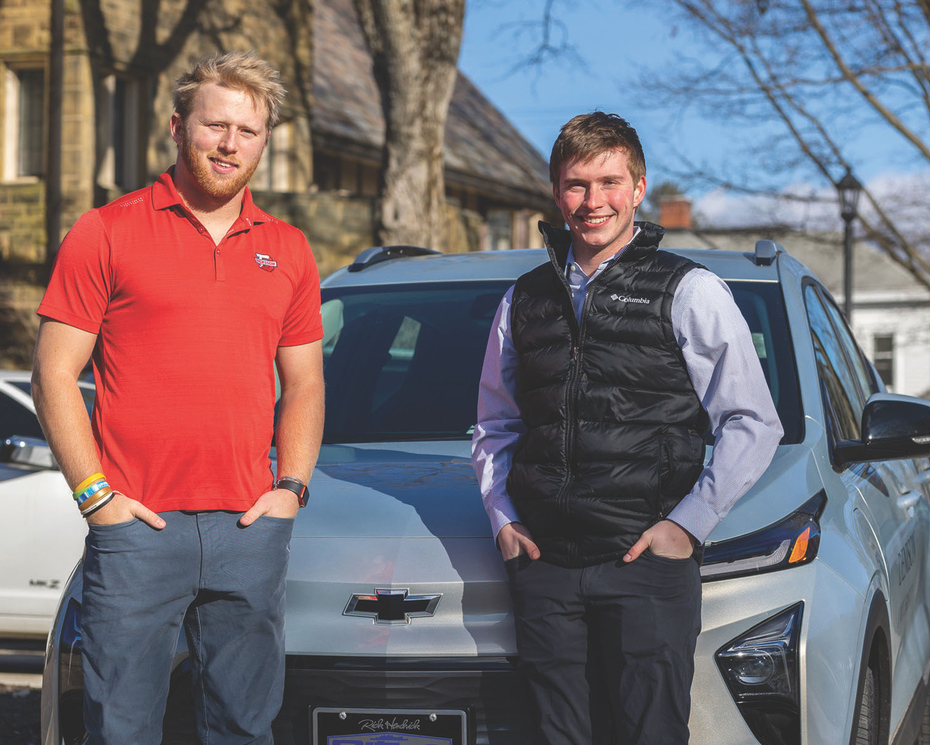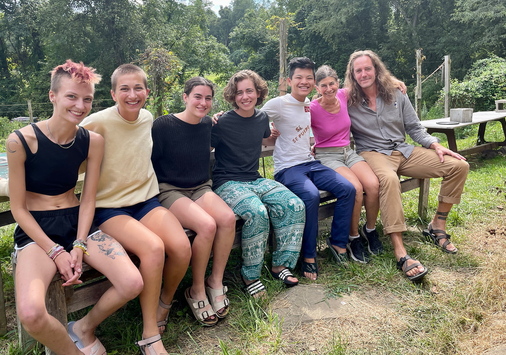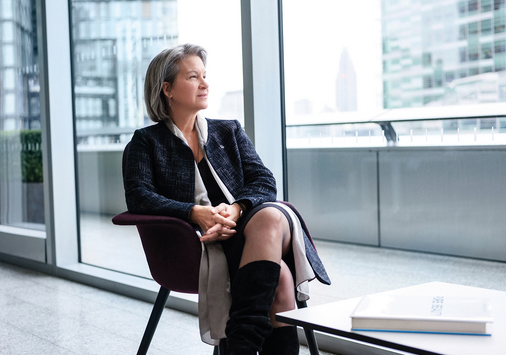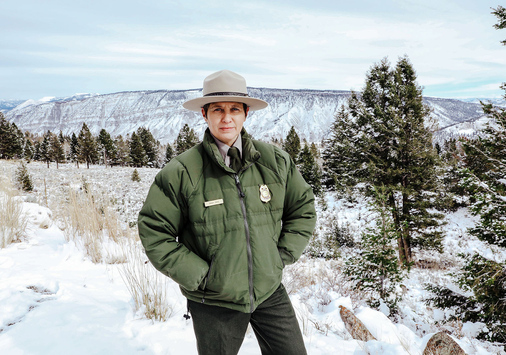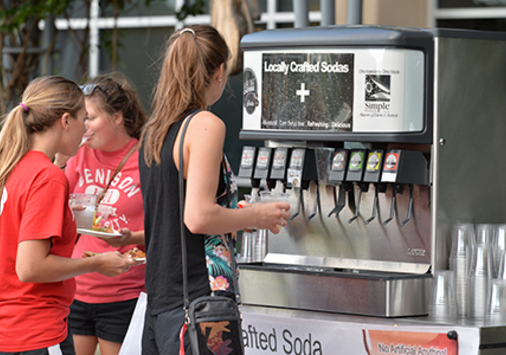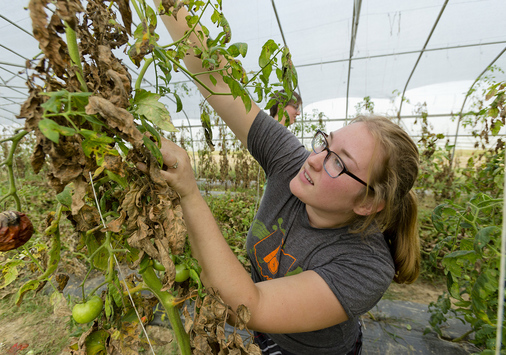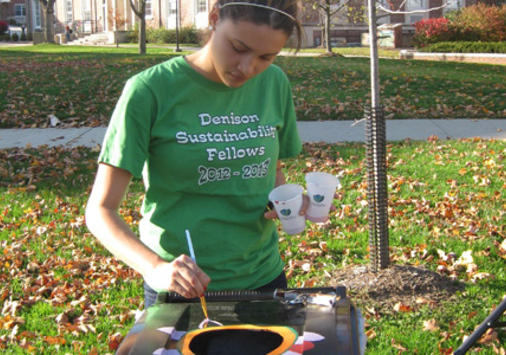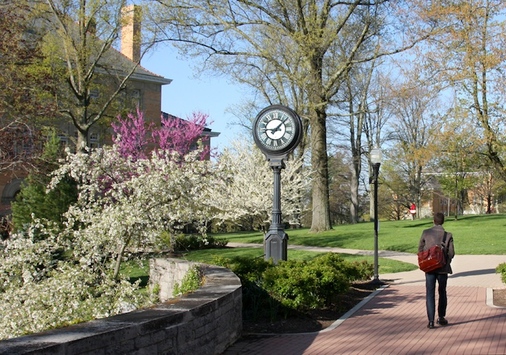History of Sustainability
Our Commitment
An early start
Denison has consistently demonstrated a strong commitment to sustainability, beginning in 1977 just seven years after the first Earth Day, when the university established the Homestead, an off-the-grid, evolving experiment in socioenvironmental-responsible community life.
We introduced a campus recycling program in 1984, which is also used by the Granville community. In 1994, our commitment ventured into the academic realm with the formation of an interdisciplinary Environmental Studies major.
In 2007, students and faculty provided the impetus to establish an Environmental Task Force. The Task Force initiated the Campus Sustainability Committee within the University Council governance system, and supported hiring a Campus Sustainability Coordinator to guide the college to address critical issues relating to sustainability. Jeremy King ‘97, who had developed a passion for sustainability during his tenure with the Peace Corps, was hired into this pivotal role.
A pledge to carbon-neutrality
In 2010, former Denison President Dale Knobel signed the American College and University Presidents’ Climate Commitment. In 2015, Denison President Adam Weinberg renewed the university’s commitment to carbon-neutrality by 2030, by signing the American Campuses Act on Climate pledge. President Weinberg further raised the bar in 2021 with an additional goal to reach net-zero carbon emissions by 2045.
“As a leading liberal arts institution, it is incumbent upon us to address climate change in the Denison way; in other words, thinking broadly, working collaboratively, and innovating boldly.” Denison President Adam Weinberg
Energy & Operations
The university initially responded to the pledge by tackling operations and overall energy efficiency. A Green Revolving Fund was implemented as a sustainable source of income directed toward these efforts. It has funded more than 70 projects to date.
In addition to efforts to reduce energy consumption, including a zero waste initiative and utilizing local and responsibly sourced foods, Denison was an early adaptor of renewable energy sources, installing solar panels to the Homestead in the early 1980s. Over the years, more panels have been added to the campus and in 2017, we developed the largest solar array of any college in Ohio which currently supplies 15% of campus energy needs, and introduced the first-of-its-kind solar pollinator habitat.
The Board of Trustees adopted LEED-certified standards for new construction on campus. To date, seven new and reconstructed buildings have adapted these standards. Denison has consistently been recognized by AASHE STARS sustainability program as well.
Denison’s beautiful campus grounds are also managed sustainably. We are recognized as a Tree Campus USA, a Bee Campus USA, and a Certified Wildlife Habitat. In addition, Denison manages its 350-acre BioReserve as a place for field research and a resource for the community to enjoy several miles of nature trails.
Academics
As an educational institution that holds sustainability as one of our core values, Denison incorporates sustainability into academic curricula to prepare our students for the future; one in which the increasing effects of climate change continue to impact communities, most of all socially vulnerable populations.
Denison students graduate with the critical thinking, problem-solving, communication, and quantitative and qualitative skills necessary to operate, change, and live in a world impacted by climate change.
In 1993, Denison was one of the first colleges in the U.S. to create an Environmental Studies major. That major was recently revised to include a broader focus on sustainability where students learn how to understand and solve problems pertaining to humans’ relationships with the natural world. It is now called Sustainability & Environmental Studies.
Denison also has a new major in Environmental Sciences that examines the evolution of the environment, how systems, including human agents, interact to produce the environment, and how present and future changes may impact the habitability of Earth.
In addition, Denison is undergoing initiatives to identify sustainability information currently embedded into the curriculum. We also are working to identify further ways in which this information can be added to academic disciplines across the college.

